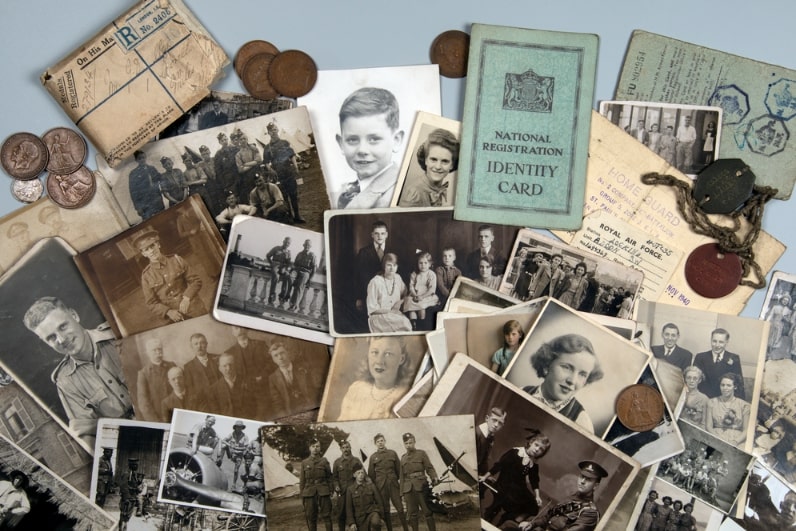Introduction: In this article, Gena Philibert-Ortega explains that genealogy education has its own language and provides a glossary to understand these terms. Gena is a genealogist and author of the book “From the Family Kitchen.”
Genealogy has its own language, that’s obvious if you’ve spent any time tracing your family tree and happened upon abbreviations like the GPS, BMD, or DC.*
Genealogy education also has a language and knowing more about what an educational program offers can help you take your research to the next level. While some of these activities are familiar, a few may be different and have a specific meaning in the genealogy world.

Photo credit: https://depositphotos.com/home.html
The following genealogical education terms and their abbreviations can help you decide what is best for you.
A Partial Glossary
Classes/Courses: A class or course may be offered by an individual, an organization, a repository or some other group. They include a specific number of sessions revolving around a topic and provide in-depth information on that topic. Classes/courses are usually offered for a fee which may or may not include handouts and archived recordings. Classes/courses may be held over one day or several months.
Conference: A multi-day event featuring speakers. A vendor hall with booths may be included. Special events may include field trips, workshops, banquets, or movie screenings. Conferences may include a special pre-conference for specific groups such as librarians. Conferences have an overall or per-day fee as well as add-ons for special events. Conference presentations last for 50 minutes to an hour and allow the attendee to learn from a variety of experts. In genealogy, a conference might be offered by a national, state, or local society, or a genealogy service provider.
Field Trip: An organized trip to a repository, museum, cemetery or other place of interest. A conference or event may organize a field trip for an additional fee, allowing the attendees special access that may include a presentation or behind-the-scenes tour.
Hybrid: A meeting, conference, or event that can be attended either in person or virtually.
Institute: Genealogical institutes are four- to five-day educational opportunities where the student chooses a particular course coordinated by an instructor that focuses on one topic. Two to four presentations a day are given that focus on that topic. This opportunity, unlike a conference, allows the student to just concentrate on a particular topic of interest such as DNA or land records. It is a more intense learning opportunity that is similar to a university class.
Keynote: A keynote speaker is someone who is providing a presentation to start a conference, or during a conference’s morning or evening session. The keynote is usually around a specific topic and differs from other presentations, as it is more motivational than strictly educational.
Seminar: A seminar is an all-day event with four educational presentations. Presentations may be provided by one or more speakers. The event might be offered in-person, virtual, or a hybrid. In most cases a genealogy society or some other group sponsors the seminar. Vendors may take part offering discounts on products or information about services. Lunch may be provided by the host for an extra charge. Seminars are usually available to attend for a fee.
Society: Most often when a genealogist refers to a society, they are referring to a genealogy society. Genealogy societies exist for cities, counties, states or specific groups. Societies offer various programming that can include monthly in-person or virtual meetings, annual seminars, and even conferences.
Webinar: A webinar is an online presentation. This can be sponsored by any number of entities, including a genealogy society or company, a library, archive, or museum. Basically, anyone who has an interest in providing educational content. Webinars typically last for one to two hours. They may or may not include handouts. Some webinars are offered for free while others are fee-based.
Workshop: Workshops are usually offered at an educational event and go beyond a one-hour presentation. Workshops typically include hands-on activities.
How Do You Learn about Genealogy?
The genealogy community provides so many ways to learn that truly there is something for everyone. To find listings of various offerings, see the website for your local society or library, or consult ConferenceKeeper.
* GPS: Genealogical Proof Standard; BMD: Birth, Marriage, Death; DC: Death Certificate.
Explore over 330 years of newspapers and historical records in GenealogyBank. Discover your family story! Start a 7-Day Free Trial
Note on the header image: family photos and genealogy records.
Credit: https://depositphotos.com/home.html
